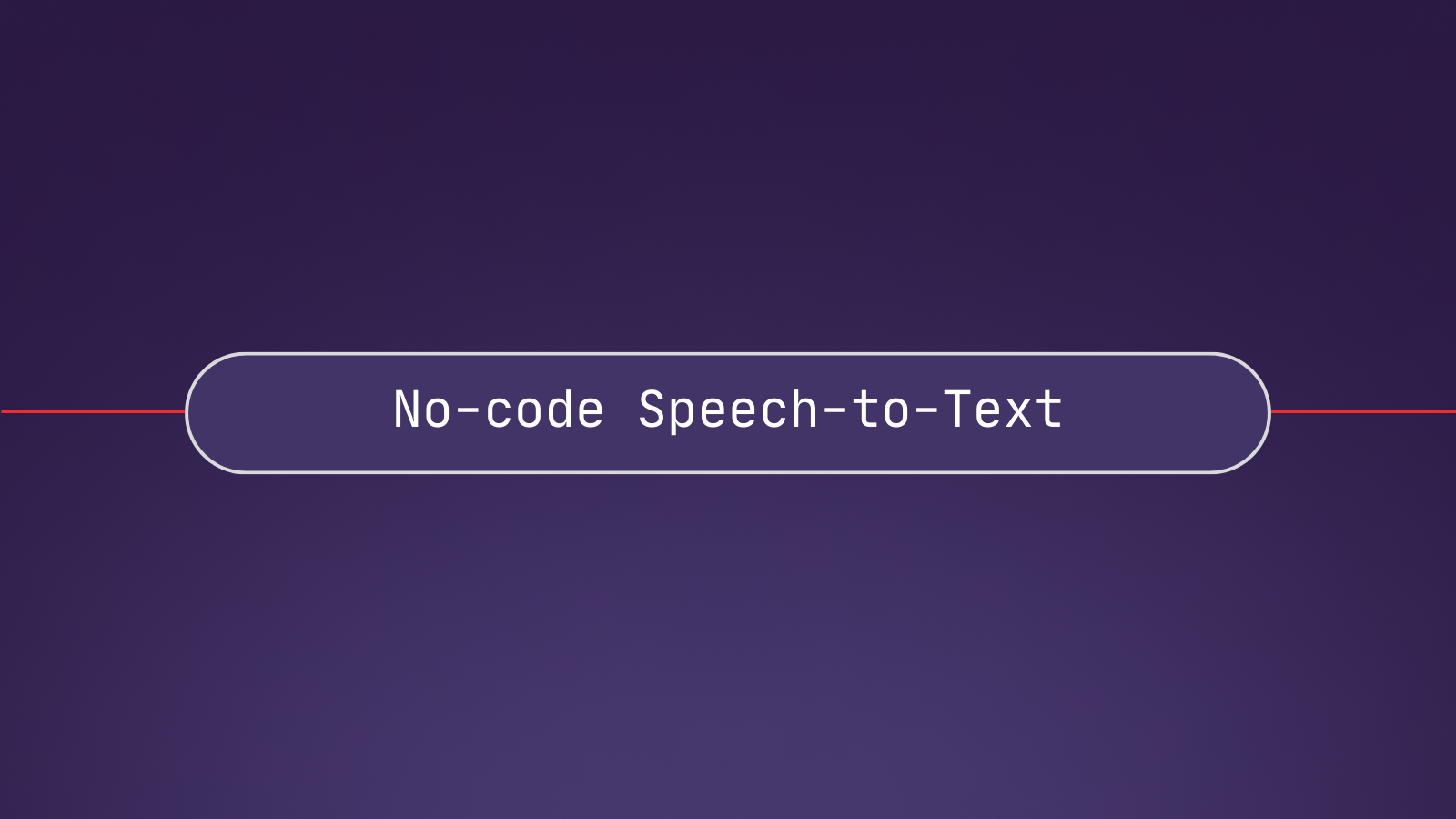⚡️Lower Latency & Lower Costs
This week AssemblyAI made major improvements to our API inference latency so that hour-long audio files transcribe in under 45 seconds, and with a Real-Time-Factor (RTF) of up to .008x. Our testing showed the following typical transcription completion times for long duration audio files:
- 1-hour (75MB) meeting in 35 seconds
- 3-hour (191MB) podcast in 133 seconds
- 8-hour (464MB) video course in 300 seconds
In addition to these improvements, we’ve substantially lowered our pricing to make our speech-to-text AI more affordable for developers. You can now access our Speech AI models with the below pricing:
- Async Speech-to-Text for $0.37 per hour (previously $0.65)
- Real-time Speech-to-Text for $0.47 per hour (previously $0.75)
Check out our changelog for the latest product updates.

Free Tier Program Boosts
Our Free Tier Program is leveling up with the following new two benefits:
- Increased transcription limit: Transcribe up to 100 hours over the lifetime of your account.
- Concurrency Upgrade: Handle up to 5 simultaneous transcription requests.
AssemblyAI Java SDK Release
The AssemblyAI Java SDK is now live! You can use the SDK to transcribe audio asynchronously or in real-time, use our audio intelligence models, and apply LLMs to your audio data using LeMUR. Here's how to transcribe an example audio file with the Java SDK and iterate through the transcript with labels for each speaker:
import com.assemblyai.api.AssemblyAI;
import com.assemblyai.api.resources.transcripts.types.*;
public final class App {
public static void main(String[] args) {
AssemblyAI client = AssemblyAI.builder()
.apiKey("YOUR_API_KEY")
.build();
String url = "https://storage.googleapis.com/aai-web-samples/5_common_sports_injuries.mp3";
var params = TranscriptOptionalParams.builder()
.speakerLabels(true)
.build();
Transcript transcript = client.transcripts().transcribe(url, params);
System.out.println(transcript.getText());
transcript.getUtterances().ifPresent(utterances ->
utterances.forEach(utterance ->
System.out.println("Speaker " + utterance.getSpeaker() + ": " + utterance.getText())
)
);
}
}
Fresh From Our Blog
How to build an interactive lecture summarization app: Learn how to build an application that automatically summarizes a lecture and lets you ask questions about the lecture material. Read more>>
Transcribe audio to text on Cloudflare Workers with AssemblyAI and TypeScript: Create an application that transcribes the audio files (and video files) to text. You'll code a TypeScript backend on top of Cloudflare Workers and use the AssemblyAI APIs to transcribe the audio. Read more>>
Ask .NET Rocks! questions with Semantic Kernel, GPT, and Chroma DB: Develop an application that answers questions about .NET Rocks! using Semantic Kernel, GPT models, Chroma DB, and AssemblyAI transcriptions. Read more>>
Our Trending YouTube Tutorials
Build Talking AI ChatBot with Text-to-Speech using Python!: This step-by-step tutorial guides you through creating an AI using AssemblyAI for real-time speech recognition, OpenAI's GPT-4 for advanced conversation processing, and ElevenLabs for realistic text-to-speech conversion.
2024's AI Essentials: 10 Must-Know AI Terms from 2023 Explained in 5 Minutes! 🚀🌟: Learn the key concepts that are driving AI forward in 2024. Equip yourself with the knowledge of these 10 critical terms and be part of the conversation shaping the future of technology.
Convert Speech to Text In Java (Basic Tutorial): Learn how to do speech recognition in Java using AssemblyAI's speech-to-text Java SDK and how to generate speaker labels in Java.








